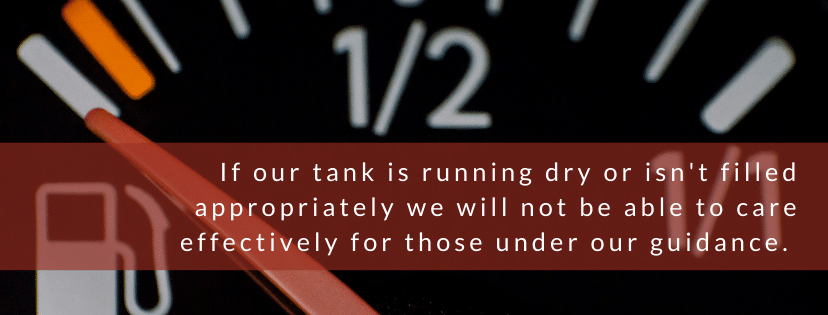Practical Tips for Counseling Students
Students today are dealing with a variety of issues. There is stress, anxiety, depression, self-harm, disordered eating, eating disorders, body image, bullying, crises of faith, peer pressures, identity, gender and sexuality, and much, much more. Whether you have had a student approach you with one of these issues (or something else entirely) or not, we as ministers and leaders must be prepared for handling the conversations that come our way.
I felt so ill-equipped the first time I counseled someone. I felt like the rudimentary training I had received did not prepare me for what I was experiencing. I didn’t know what to do, what to say, or how to help. But somehow the Spirit of God worked through me to help that person, and they began to move toward healing. However, that cannot be our M.O. for each session. We must be prepared and equipped to enter into these very important conversations. Today, I want to offer some practical tips on how to prepare for counseling students and families, and to offer guidance in how to move through some of these conversations. At the end of this post I will also share some extremely helpful resources I think everyone in student ministry should have.
One should note that these tips and resources are not all-inclusive. Nor are they the only qualities that make for an effective counselor. These are simply tips to help prepare you as you step into these counseling scenarios and to prayerfully resource you as you lead and guide the students God has placed under your care.
Before entering into any type of counseling relationship, here are a few tips on how to be better prepared for them:
Resource yourself.
This is something we should all be doing. Get to know counselors who can provide you with insight and understanding. Talk to your local health professionals about trends they are seeing in students and what they are dealing with. Purchase books on counseling, listen to podcasts, and talk to other youth workers. Gaining this wisdom and utilizing these resources will help prepare you to step into counseling situations.
Know your referral network.
There will be many times where a student or parent comes to you with an issue you cannot help with because it is outside the scope of your skill set. Never try to help someone in an area for which you are not equipped because you could actually cause more issues or offer flawed advice. This tends to go against what we feel within our hearts because we are shepherds and want to care for our people well. But the reality is that even well-intended and well-meaning people could offer advice that is good in intention but flawed in practice.

This is why knowing your referral network is huge. Become acquainted with the counselors in your community and build a relationship where you can refer students to them when necessary. Know your first responders and how to get in touch with them when needed. Meet with mental health professionals and find out how you can work together. Connect with schools and the counselors there so you can both be resources for one another. Having this type of network and community allows you to know who you can refer to and allows for there to be trust and rapport that will help when transitioning a student to a new contact.
Be a trustworthy person.
In order for students to come to us as a counselor, we must be someone they trust. This is showcased by our actions, reactions, speech, and care that we provide on a daily basis to students. Who we are must be the same both inside and outside of church. When students see our hearts on display and our authenticity it helps them to know that we are people they can trust with the issues and hurt they carry.
Be in prayer and grow your spiritual health.
To be effective counselors (and ministers) we must be in constant prayer and growing in our relationship with God. Our tank needs to be filled so we can pour into others. If our tank is running dry or isn’t filled appropriately we will not be able to care effectively for those under our guidance. So make sure to spend regular and consistent time on your own spiritual growth and make sure you are spiritually prepared to step into the role of counselor.

Here are some tips on what to say or do doing a counseling session:
Listen well.
This is huge! Students are coming to you because they see you as someone who can be trusted and someone who loves them. Nothing can fracture that relationship more than for a student to have an experience with a youth worker who doesn’t listen or doesn’t listen well. Sometimes we need to be silent and just give students space to share. It may not always be pretty. They may swear, they might cry, there may be intimate details shared, and there may be some moments you need to involve the authorities. But in listening well you are validating the student and what they are going through. You are hearing them fully and continuing to create a space and trustworthy place for them to be. A simple rule of thumb is if you find yourself doing most of the talking, stop and listen more.
Take notes.
This can be both during and after a meeting. Sometimes taking notes during a meeting may feel very clinical and disconnected, so if it suits the scenario better make your notes immediately after the session is over. Much of this can depend on how you process and hear information. If you do need to take notes during the session, make sure the student knows what you are doing and why. A simple explanation can be, “I want to make sure I hear everything you say, and this will help me to also follow up with you because I care about you.”
These notes will not only allow for you to better recall what was said, but they will help you in moving forward with the student. Take notes about their body language, how they answer, the emotions they are presenting, the language they use to describe things. All of these notes will help you better understand how to love and care for them.
Be empathetic.
Empathy is the ability to “feel with” the counseled individual and understand what they are seeing and feeling. This is something that connects you with the student and helps you to relate and interact with them. This is not you taking on what the student is experiencing or forcing tears to relate, but is a heart reaction to the pain and reality facing you. Show this through your response. Even if you do not emphasize well, your physical response will help to show this. Make sure your facial expressions show engagement and understanding. Allow for your tone to indicate how your heart is responding. Let your body language show understanding and engagement. These reactions help the student to see that you feel with them and are engaged with their world.
Follow up.
Follow-up is hugely important and necessary regardless of what was shared. Even if it was a single counseling session and all that was needed was for the student to be able to share what was on their heart. The follow-up of “I love you and I am praying for you” or “how are you doing and how is your heart” will go a long way because it shows the student they matter to you and have value. If the session warrants more in-depth follow-up, be willing to do that as well. Ask about the circumstances, ask how they are doing, if they have dealt with those thoughts or desires anymore, and how you can continue to pray for them.
Follow-up may also include continued meeting or referring them to a trained counselor. Part of counseling students means there may be more sessions to continue to process and work through what was talked about. But in some cases this may not be something you can do because of limited training in this field. If that is the case, be willing to refer out to a trusted counselor. If the situation allows for it, I would personally recommend walking physically with the student in this transition. Meaning, introduce them to the counselor in person. Vouch for the counselor and do all you can to help with a good transition to the new counselor. This will allow the student to see that you trust the counselor and will open them up to sharing more with the counselor.
Recommended resources:
The Quick-Reference Guide to Counseling Teenagers
Quick Scripture Reference for Counseling Youth
Christian Counseling: A Comprehensive Guide
The Quick-Reference Guide to Biblical Counseling
About the Author
Nick and Elise Mance
We are Nick and Elise Mance, the husband and wife team behind Kalos, a place where we write about student ministry. God cultivated in each of us a passion for youth ministry before bringing us together. Since getting married, God has continued to equip and guide us as we seek to minister to youth, families, and leaders. We… Read More




